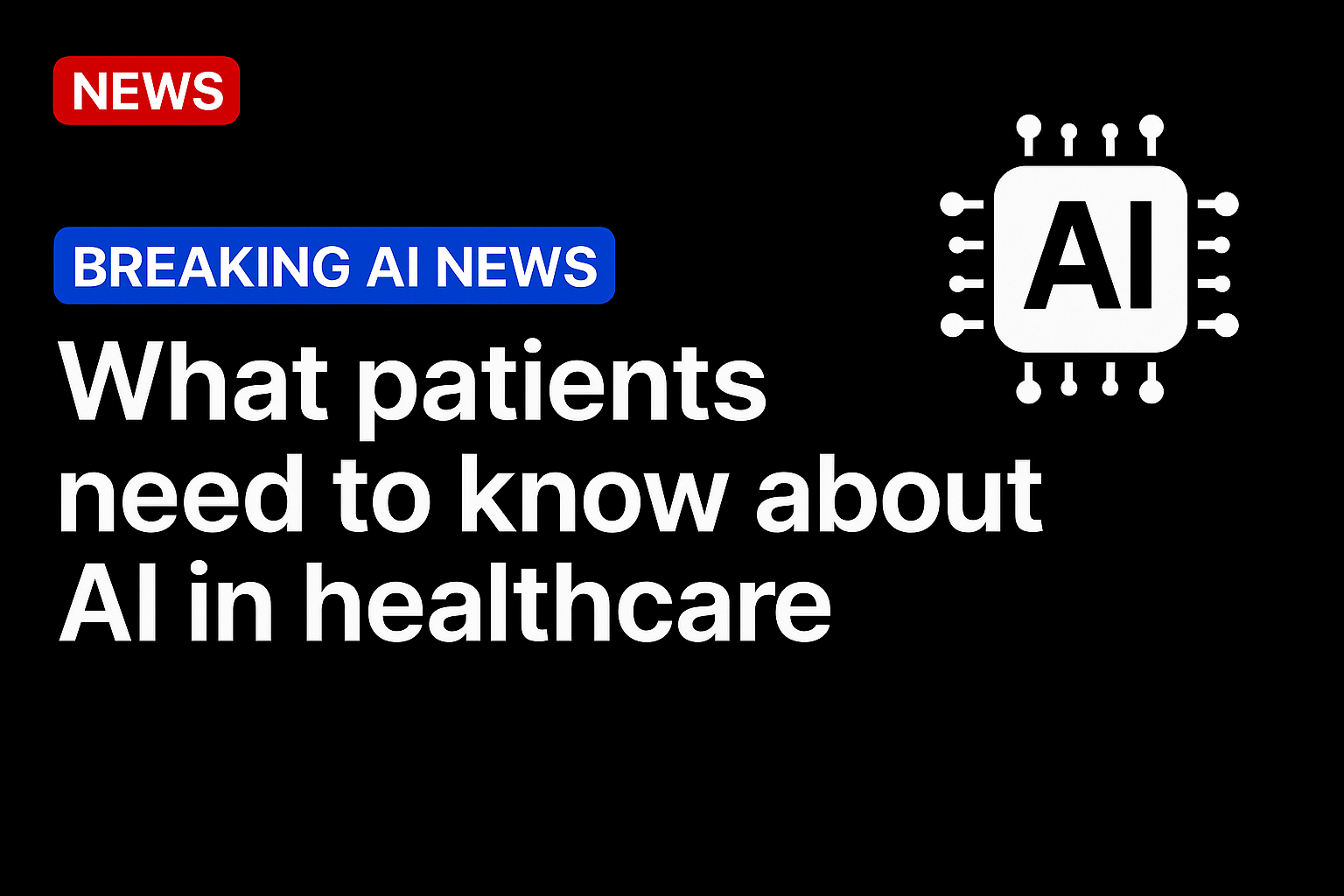In a recent podcast, OpenAI CEO Sam Altman highlighted an important limitation of current AI technologies: interactions with AI chat tools like ChatGPT do not have legal confidentiality protections, unlike those with licensed professionals under doctor-patient or attorney-client privilege. This means chat logs could potentially be subpoenaed in legal proceedings. Considering that these AI conversations often involve deeply personal and sensitive topics, from mental healthvase to relationship issues, this lack of formal legal safeguards presents significant privacy concerns. The critical takeaway is clear: not all AI interactions provide equal levels of privacy protection, and transparency about data use and privacy is essential.
Why Privacy in AI Matters Now
Artificial intelligence is significantly transforming healthcare, offering real-time decision support, personalized interventions, and continuous patient engagement. At Drive Health, we have developed an advanced AI caregiver called Avery, specifically engineered to enhance provider capabilities and patient experiences. Avery facilitates streamlined care coordination, reduces unnecessary hospital readmissions, proactively supports patient health, and serves as a 24/7 companion patients can access from their mobile devices for any medically relevant conversations.
As an Arizona-based innovator, Drive Health is pushing the boundaries of human-centered, agentic AI solutions explicitly designed for healthcare contexts. By utilizing Google’s secure cloud infrastructure, we ensure enterprise-grade security, including robust encryption and rigorous compliance with healthcare regulatory frameworks, to meet the exacting demands of both patient privacy and clinical workflows. As AI continues its integration into healthcare, our commitment to innovation is matched by our emphasis on privacy, accountability, and patient/provider trust.
Considerations for Patients and Providers
• Understanding AI Context: The use of AI tools within regulated healthcare environments, subject to standards such as HIPAA, is fundamentally different from consumer-grade AI chatbots. Privacy expectations and protections are inherently linked to these contextual differences.
• Clarify Data Policies: Reliable healthcare AI solutions should transparently disclose their data handling practices. This includes explicit guidelines on data retention, data usage limits, informed consent mechanisms, and robust auditing capabilities.
• Manage Emotional and Sensitive Content Cautiously: AI platforms used for personal or emotionally sensitive conversations may carry legal risks due to the absence of privilege protections. Standard consumer-grade AI tools were not designed with healthcare privacy standards in mind, underscoring the necessity for purpose-built, clinically integrated AI systems.
• Demand and Support Regulatory Standards: Industry leaders, including Altman, advocate for dedicated AI privacy frameworks comparable to HIPAA for healthcare settings. At Drive Health, we support and actively adapt to emerging regulatory standards, such as the proposed U.S. AI Bill of Rights and updates to healthcare privacy regulations, ensuring our technologies align with best practices and evolving legislative landscapes.
Driving Innovation with Trust
Patients deserve clear insights into how their data is used, while clinicians require trustworthy AI tools integrated seamlessly into healthcare delivery. Technology companies must balance rapid innovation with rigorous commitment to privacy and data security.
At Drive Health, patient privacy is embedded by design, not an afterthought. Our objective is to deliver smarter, more personalized, and fully secure healthcare experiences, achieved through:
• Hosting Avery on secure cloud platforms via Google Cloud Platform, meeting and exceeding industry-standard security measures.
• Designing AI products explicitly for healthcare contexts, enabling clinicians and care teams to leverage Avery’s capabilities in clinical workflows, such as appointment scheduling, patient reminders, clinical chart review, and personalized health education, augmenting the licensed professional interactions.
• Maintaining stringent data governance and implementing data minimization principles, processing only essential information required for clinical effectiveness and health system efficiency.
Collectively, our industry holds the responsibility to deploy AI thoughtfully and transparently, preserving patient trust. This means:
• Promoting clear, upfront communication about AI data utilization practices.
• Collaborating proactively with policymakers, healthcare leaders, and regulatory bodies to define clear, robust privacy frameworks before expanding AI’s role in healthcare.
• Ensuring infrastructure rigorously adheres to healthcare-grade security and compliance standards, backed by transparent verification and auditing.
AI must advance healthcare without compromising patient confidentiality. As AI adoption grows within healthcare, patient privacy must be an integral part of its foundation, not an incidental cost of innovation.
Source: https://azbigmedia.com/

